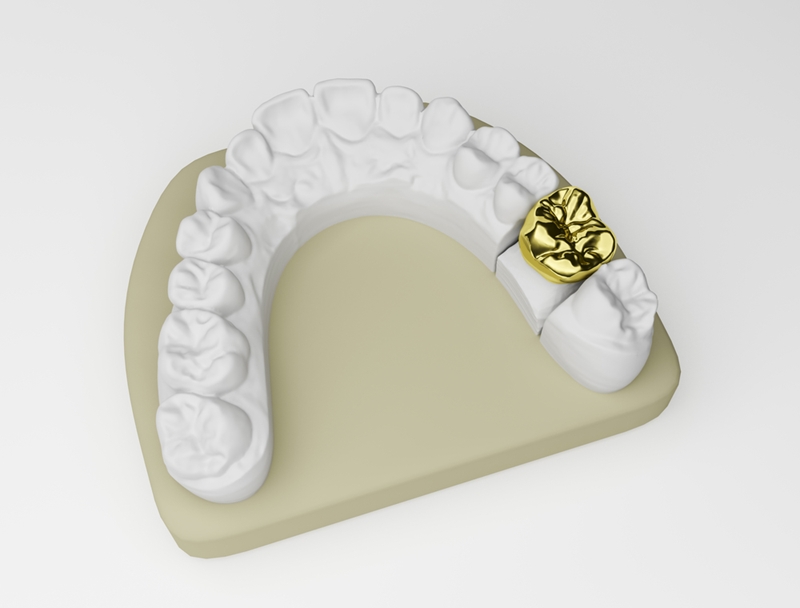
Thanks to community water fluoridation, advances in dental technology and enhanced oral care education, Americans are keeping more of their teeth for longer.1 While this trend carries advantages for chewing, speaking and self-confidence, older adults are still at risk for the same dental health issues experienced by younger generations: gingivitis, dental caries and tooth decay. Because of this, there's a new question brought to the dental health industry: How will retired seniors pay for the care it takes to keep their smiles healthy?
"Aging may make teeth more susceptible to fractures."
Why seniors are at risk
Not only are seniors tasked with caring for their teeth during retirement, unlike their senior predecessors who were less likely to have all their teeth, but they face new dental challenges with age. For example, aging may make teeth more susceptible to fractures and put them at a higher risk for decay.2
Poor oral health can increase seniors' risk for serious health problems that are already more prevalent in older adults. A growing body of research has connected infections in the mouth with heart disease, stroke, diabetes, pneumonia and other age-related health issues.3 Plus, the gums naturally recede over time, which exposes the part of the tooth that isn't protected by enamel.4 So, while more seniors than ever before may be keeping their natural smiles, they are also more susceptible to sensitivity, cavities and fractured teeth.
Additionally, many seniors manage multiple medications, which can be detrimental to their oral health. For instance, dry mouth is a common side effect of many prescriptions, which means the mouth produces less than the normal amount of saliva. Saliva is important for maintaining proper oral health because it naturally balances out the bacteria. Without this crucial defense, seniors are at a higher risk of dental decay, which requires professional dental treatment.
The growing cost of dental care
When it comes to retired seniors and health insurance, they typically have to rely on a spouse or insurance coverage from a former employer. Otherwise, many older adults are left to their own devices when it comes to dental care.
Unfortunately, Medicare - which is often the health insurance solution for retired seniors - typically does not cover most dental care procedures such as cleanings, fillings, tooth extractions or other dental services.5 That can leave seniors either paying huge expenses out of pocket or opting to forgo dental treatment altogether. After all, socioeconomic status is a big indicator of one's oral health. In fact, for adults over the age of 65, those in poverty are twice as likely to have lost all their teeth than those with a higher income.1

A crown can cost a lot of money out of pocket.
To put the cost of dental care in perspective, a single, metal-ceramic crown restoration in Chicago would cost approximately $1,730 without insurance. Just a simple cleaning, which is recommended twice a year to maintain a healthy smile, would be about $110 in this city.6 Of course, the price varies depending on location, but the same rule applies: Without insurance, dental care is expensive.
It's not surprising then that so many people cite cost as a reason they don't plan on going to the dentist. In fact, according to a 2014 American Dental Association study, of the 22.9 percent of adults who revealed that they were either unsure or definitely did not plan to visit the dentist within the next 12 months, 40 percent answered that their decision was based off the high cost of dental care.7
Alternatives to insurance
One option for retired seniors without insurance is a dental discount card. With a dental discount card, seniors enter into a membership program in which they have access to low-cost dental services for anything from a simple cleaning, to a crown, to treatment for a dental emergency. One low monthly payment, usually about $10 a month, allows seniors to tap into a network of dentists in locations across the country. Additionally, the dental discount card can benefit an entire household.
This plan is not insurance, but it can give seniors crucial dental health discounts. By presenting the card at a participating dental office, the holder can receive between 20 and 50 percent off most standard and specialty oral services.
While financing oral care brings new challenges for retired seniors without insurance, it's still important they regularly see their dentist to promote their oral health and overall well-being.
_____________________________________________________________________________
1. "New Series of Reports to Monitor Health of Older Americans" Centers for Disease Control and Prevention, NCHS Pressroom, January 26, 2010. http://www.cdc.gov/nchs/pressroom/01facts/olderame.htm
2. "When you don't have dental insurance," Heather Larson, Forbes, May 14, 2014. http://www.forbes.com/sites/nextavenue/2014/05/14/when-you-dont-have-dental-insurance/
3. "Adults over 60," American Dental Association. http://www.mouthhealthy.org/en/adults-over-60/
4. "Oral health for seniors," Colgate, November 15, 2010. http://www.colgate.com/en/us/oc/oral-health/life-stages/oral-care-age-55-up/article/oral-health-for-seniors
5. "Your Medicare coverage," Medicare.gov. http://www.medicare.gov/coverage/dental-services.html
6. "Dental cost lookup," FAIR Health. http://fairhealthconsumer.org/dentalcostlookup.php
7. "Why Adults Forgo Dental Care: Evidence from a New National Survey," Cassandra Yarbrough, M.P.P.; Kamyar Nasseh, Ph.D.; Marko Vujicic, Ph.D., Health Policy Institute, American Dental Association. http://www.ada.org/~/media/ADA/Science%20and%20Research/HPI/Files/HPIBrief_1114_1.ashx
